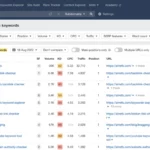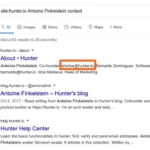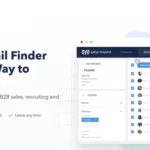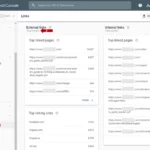To identify your ideal customer profile, you need to analyze demographic information, psychographic characteristics, and purchasing behaviors of your target audience. Conduct market research, analyze customer data, and create buyer personas to gain a comprehensive understanding of your ideal customers.
1. Understand Your Target Audience

To effectively generate SEO leads, it is essential to gain a deep understanding of your target audience. This involves identifying your ideal customer profile and researching relevant keywords and search intent. Identifying your ideal customer profile requires analyzing demographic information, psychographic characteristics, and purchasing behaviors of your target audience. By understanding their needs, pain points, and motivations, you can tailor your SEO lead generation efforts to attract the right prospects. Researching keywords and search intent is crucial for optimizing your website’s content to align with what your target audience is searching for. Use keyword research tools like Google Keyword Planner to identify high-volume keywords that are relevant to your industry. Additionally, analyzing search intent will help you understand the specific information or solutions your target audience is seeking. By providing valuable and targeted content that aligns with their search intent, you can attract qualified leads to your website.
1.1 Identify Your Ideal Customer Profile
When it comes to identifying your ideal customer profile, there are several key factors to consider. Demographic information such as age, gender, location, and income level can provide valuable insights into who your target audience is. Understanding their psychographic characteristics such as interests, values, and lifestyle can help you tailor your marketing messages to resonate with them. It’s also important to analyze their purchasing behaviors to determine their buying habits, preferences, and decision-making processes.
To create a complete picture of your ideal customer profile, consider conducting surveys, interviews, or analyzing data from your existing customer base. Look for commonalities and patterns that can help you identify the characteristics of your most valuable customers. This information can guide your SEO lead generation efforts and ensure that your content and messaging are targeted towards attracting the right prospects.
By understanding your ideal customer profile, you can create a more focused and effective SEO strategy that aligns with their needs and preferences. This will increase the likelihood of attracting qualified leads to your website and ultimately converting them into customers.
1.2 Research Keywords and Search Intent
When it comes to generating SEO leads, conducting thorough research on keywords and search intent is crucial. Researching keywords involves identifying the specific terms and phrases that your target audience uses when searching for products or services related to your industry. By using keyword research tools like Google Keyword Planner, you can discover high-volume keywords that have the potential to drive traffic to your website. It’s important to focus on long-tail keywords that are more specific and have less competition, as they can often attract more qualified leads. Additionally, analyzing search intent is essential for understanding the motivations behind your target audience’s searches. Are they looking for information, products, or solutions? By aligning your content with their search intent, you can provide valuable and relevant information that positions you as an authority in your industry. Remember to optimize your website’s content and meta tags with the identified keywords to increase your chances of ranking higher in search engine results. By continuously monitoring and refining your keyword strategy, you can stay ahead of the competition and attract targeted SEO leads to your website.
2. Optimize Your Website for Lead Generation
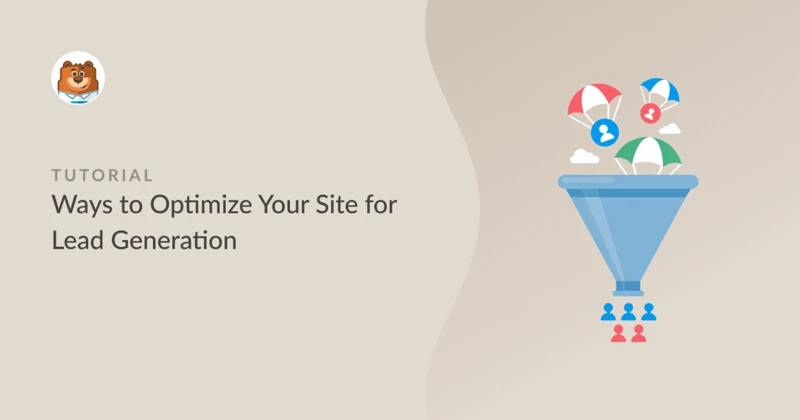
Optimizing your website for lead generation is a crucial step in attracting and converting SEO leads. Create compelling landing pages that are specifically designed to capture the attention of your target audience and encourage them to take action. These landing pages should contain persuasive copy, visually appealing graphics, and a clear call-to-action. Implement clear call-to-actions throughout your website to guide visitors towards taking the desired action, such as filling out a contact form or subscribing to a newsletter. Make sure these call-to-actions are easily visible and prominently placed on your webpages. Use lead capture forms strategically to gather contact information from interested prospects. Place these forms on relevant landing pages and offer something of value in return, such as a free ebook or a consultation, to incentivize visitors to provide their information. By optimizing your website for lead generation, you can increase the chances of converting website visitors into valuable leads.
2.1 Create Compelling Landing Pages
Creating compelling landing pages is a crucial aspect of generating SEO leads. A well-designed landing page should be visually appealing, have a clear and concise headline, and provide valuable information or an enticing offer to capture the attention of visitors. Use high-quality images and engaging copy to make your landing page visually appealing and persuasive. Incorporate clear and compelling call-to-actions (CTAs) that guide visitors towards taking the desired action, such as filling out a form or making a purchase. To optimize your landing page for SEO, ensure that it is optimized with relevant keywords and includes meta tags and meta descriptions. Additionally, keep your landing page focused on a specific goal or offer to avoid distractions and increase conversion rates. By creating compelling and optimized landing pages, you can increase the chances of converting website visitors into valuable SEO leads.
2.2 Implement Clear Call-to-Actions
When it comes to optimizing your website for lead generation, one crucial element is implementing clear call-to-actions (CTAs). CTAs are prompts that encourage visitors to take a specific action, such as signing up for a newsletter, requesting a quote, or downloading a guide. By strategically placing CTAs throughout your website, you can guide visitors towards converting into leads. To implement effective CTAs, there are a few key factors to consider. First, ensure that your CTAs are visually appealing and easily noticeable, using contrasting colors and eye-catching design elements. Secondly, make sure your CTAs are concise and action-oriented, clearly stating what action the visitor should take. For example, instead of using a generic CTA like “Learn More,” use a specific and compelling CTA like “Get Your Free SEO Analysis Now.” Additionally, it’s important to place your CTAs strategically in high-visibility areas of your website, such as the header, sidebar, or at the end of a blog post. Finally, consider using persuasive language and offering incentives to entice visitors to click on your CTAs, such as a free trial, a discount, or exclusive content. By implementing clear and compelling CTAs, you can effectively guide your website visitors towards becoming SEO leads.
2.3 Use Lead Capture Forms
Using lead capture forms is an effective way to collect valuable information from your website visitors and convert them into SEO leads. These forms act as a gateway for visitors to provide their contact details in exchange for something of value, such as a newsletter subscription, ebook, or webinar registration. Lead capture forms should be strategically placed on your website, particularly on landing pages or blog posts that receive high traffic. The forms should be concise, visually appealing, and easy to fill out. Keep the number of fields to a minimum to avoid overwhelming visitors and increasing bounce rates. Instead, focus on collecting the most essential information, such as name and email address. To increase conversions, consider offering incentives or using persuasive language to encourage visitors to fill out the form. Additionally, make sure your lead capture forms are mobile-friendly to cater to the growing number of users accessing websites from their smartphones or tablets. Integrating your lead capture forms with a customer relationship management (CRM) system can streamline the process of managing and nurturing leads. By effectively utilizing lead capture forms, you can gather valuable data and grow your pool of SEO leads.
3. Develop a Content Marketing Strategy
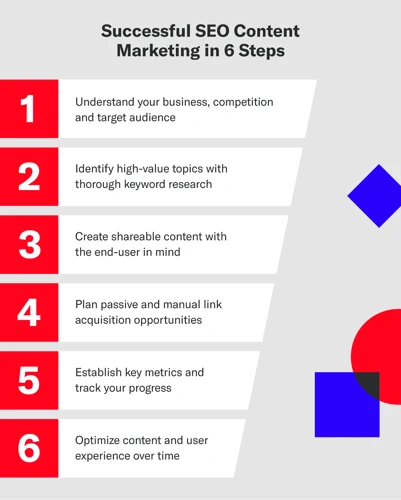
Developing a comprehensive content marketing strategy is vital for generating SEO leads. Producing high-quality blog posts is a key component of this strategy. By creating informative and engaging blog posts that address the pain points and interests of your target audience, you can attract organic traffic and establish your expertise in the industry. Incorporate relevant keywords into your blog posts to optimize them for search engines, increasing the chances of ranking higher in search results. Creating informative infographics is another effective way to capture the attention of your target audience. Infographics visually present complex information in a concise and visually appealing manner, making it easier for users to understand and share. Be sure to optimize your infographics with alt text and relevant keywords for better SEO performance. Publishing engaging videos can also play a vital role in your content marketing strategy. Videos are highly engaging and have the potential to go viral, attracting a wider audience and increasing brand visibility. Optimize your videos by adding relevant keywords to titles, descriptions, and tags. Additionally, consider embedding videos on your website to increase user engagement and time spent on your site. By incorporating these content marketing tactics into your strategy, you can effectively attract and engage your target audience, ultimately generating valuable SEO leads.
3.1 Produce High-Quality Blog Posts
When it comes to developing a content marketing strategy to generate SEO leads, producing high-quality blog posts is a crucial aspect. High-quality blog posts not only provide valuable information to your target audience but also help establish your authority and expertise in your industry. To create high-quality blog posts, start by conducting thorough research on the topic you want to cover. Use reputable sources, statistics, and studies to back up your claims and provide accurate and reliable information. Incorporate relevant keywords into your blog posts to optimize them for search engines and improve their visibility. Additionally, make sure your blog posts are well-structured and easy to read, with clear headings, subheadings, and bullet points. Use engaging and compelling language to capture the attention of your readers and keep them engaged throughout the post. Finally, don’t forget to include a strong call-to-action at the end of each blog post, encouraging readers to take the next step, whether it’s signing up for a newsletter, downloading a free guide, or contacting your business for more information. By consistently producing high-quality blog posts that address the needs and interests of your target audience, you can attract organic traffic to your website and generate valuable SEO leads.
3.2 Create Informative Infographics
Creating informative infographics is an effective strategy to engage your target audience and generate SEO leads. Infographics are visual representations of information or data that are visually appealing and easy to understand. Infographics allow you to present complex information in a visually appealing and digestible format, making it more likely to be shared and linked to by other websites. When creating infographics, it’s important to choose a relevant and interesting topic that your target audience will find valuable. Conduct thorough research and gather accurate data to ensure the credibility and usefulness of your infographic. Use compelling visuals such as graphs, charts, and illustrations to make the information more engaging and memorable. Additionally, include relevant keywords in the title, description, and alt text of your infographic to optimize it for search engines. Once your infographic is created, promote it through your website, blog, and social media channels to attract attention and generate backlinks. Infographics can also be embedded in other websites or shared on infographic directories, increasing its visibility and reach. By creating informative infographics, you can capture the attention of your target audience, establish your expertise, and generate valuable SEO leads.
3.3 Publish Engaging Videos
Publishing engaging videos is a powerful strategy to attract SEO leads and increase your online visibility. Videos have become increasingly popular among internet users, making them an effective medium to engage your target audience. Creating high-quality videos that are informative, entertaining, and relevant to your target audience’s interests can help establish your brand as an authority in your industry. Whether it’s a tutorial, product demonstration, or industry insights, videos provide a visually appealing and engaging way to deliver valuable content. Additionally, optimizing your videos for SEO by using relevant keywords in titles, descriptions, and tags can improve their visibility in search engine results pages. This can drive organic traffic to your website and generate leads. To further maximize the impact of your videos, share them on various platforms such as YouTube, social media channels, and your website. By reaching a wider audience, you increase the chances of attracting potential leads. Remember to include a clear call-to-action in your videos, such as directing viewers to your website or encouraging them to subscribe to your channel. By consistently producing engaging videos, you can build brand awareness, establish credibility, and attract SEO leads in a dynamic and effective way.
4. Leverage Social Media Platforms
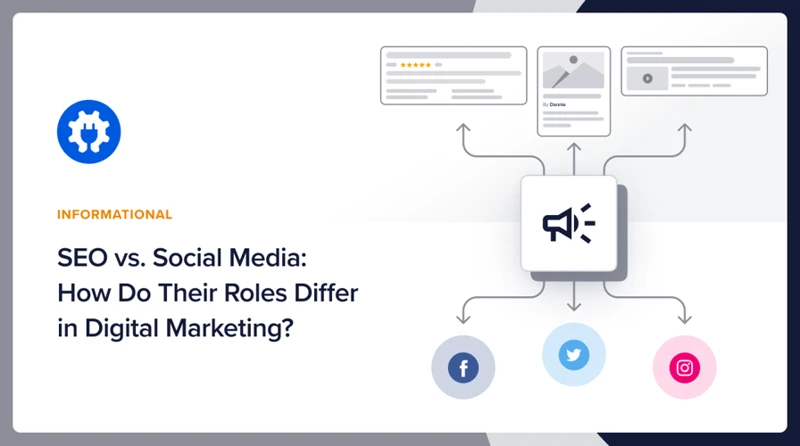
To expand your reach and attract SEO leads, it is crucial to leverage social media platforms effectively. Engaging with your target audience is a key aspect of social media marketing. Respond to comments, messages, and mentions promptly to show that you value their engagement and are willing to provide assistance. Building relationships with your audience can lead to increased trust and ultimately generate more leads. Sharing valuable content is another important strategy. Regularly post informative and relevant content that resonates with your target audience. This can include blog posts, articles, videos, infographics, and industry news. By providing valuable and shareable content, you increase the chances of your posts being seen by a wider audience, potentially attracting more leads. Utilizing paid advertising options on social media platforms can also be an effective way to generate SEO leads. Facebook Ads, Instagram Ads, and LinkedIn Ads allow you to target specific demographics and interests, ensuring that your content reaches the right audience. By combining organic engagement with paid advertising, you can maximize your social media presence and attract a steady stream of leads. So, make sure to incorporate social media into your SEO lead generation strategy to expand your online presence and attract a wider audience.
4.1 Engage with Your Target Audience
Engaging with your target audience is a crucial aspect of generating SEO leads. Building a strong online presence through social media platforms allows you to connect with your audience on a more personal level. Responding to comments, messages, and reviews shows that you value their feedback and are actively listening to their needs. It is important to establish a two-way communication by asking questions, starting conversations, and encouraging user-generated content. This not only helps you to understand your audience better but also builds trust and credibility. Another effective way to engage with your target audience is by participating in relevant online communities and forums. Contribute valuable insights, answer questions, and provide helpful resources to establish yourself as an industry expert. By consistently engaging with your target audience, you create a sense of community and increase the likelihood of attracting SEO leads who are genuinely interested in your products or services.
4.2 Share Valuable Content
When it comes to leveraging social media platforms for SEO lead generation, one of the key strategies is to share valuable content. By sharing valuable content, you establish yourself as an authority in your industry and build trust with your target audience. Create blog posts, articles, or videos that provide insightful information, tips, and solutions to the problems your audience faces. This content should be relevant to your target audience’s interests and aligned with their search intent. By consistently sharing valuable content, you encourage engagement, likes, shares, and comments, which can help increase your visibility and attract more potential leads. Additionally, when sharing your content on social media platforms, make sure to optimize your posts with relevant keywords and hashtags to increase their discoverability. By incorporating a strong call-to-action in your content, such as encouraging users to visit your website, sign up for a newsletter, or download a free resource, you can effectively drive traffic and generate leads. Remember, the key to sharing valuable content is to focus on providing value to your audience and building meaningful connections.
4.3 Utilize Paid Advertising Options
Utilizing paid advertising options is a strategic way to boost your SEO lead generation efforts. There are various paid advertising platforms available that can help you reach a wider audience and drive targeted traffic to your website. One popular option is Google Ads, which allows you to create and display ads on the Google search engine results pages. With Google Ads, you can target specific keywords, demographics, and locations to ensure your ads are reaching the right audience. Another effective paid advertising option is social media advertising. Platforms like Facebook, Instagram, and LinkedIn offer robust advertising capabilities that allow you to target users based on their interests, demographics, and online behavior. By creating compelling ad campaigns with engaging visuals and persuasive ad copy, you can attract potential leads and drive them to your website. Additionally, consider exploring native advertising options, such as sponsored content on relevant websites or influencer partnerships, to expand your reach and generate more SEO leads. It’s important to carefully plan and optimize your paid advertising campaigns to ensure you are maximizing your return on investment and attracting high-quality leads to your business.
5. Implement Effective SEO Strategies
Implementing effective SEO strategies is crucial for driving organic traffic and generating leads. Here are three key tactics to consider:
Perform On-Page Optimization: Optimize your website’s on-page elements to improve its visibility in search engine results. This includes optimizing meta tags, headers, URLs, and incorporating relevant keywords naturally within your content. Make sure your website is mobile-friendly, as mobile optimization is increasingly important for SEO.
Build High-Quality Backlinks: Backlinks are an essential part of SEO, as they signal to search engines that your website is authoritative and trustworthy. Focus on obtaining backlinks from reputable and relevant websites in your industry. You can do this by creating valuable content that others will want to link to, reaching out to industry influencers for guest posting opportunities, or participating in online communities and forums.
Monitor and Analyze Your SEO Performance: Regularly monitor and analyze your SEO performance to identify areas for improvement. Keep track of important metrics such as organic traffic, keyword rankings, and conversion rates. Tools like Google Analytics and Ahrefs can provide valuable insights into your website’s performance and help you make data-driven decisions to optimize your SEO strategy.
By implementing these effective SEO strategies, you can increase your website’s visibility, attract targeted traffic, and generate valuable leads for your business.
5.1 Perform On-Page Optimization
Performing on-page optimization is a crucial aspect of SEO lead generation. On-page optimization refers to the various techniques used to optimize individual web pages to improve their search engine rankings and attract relevant organic traffic. There are several key elements to consider when performing on-page optimization. Firstly, it’s important to optimize your title tags by including relevant keywords that accurately describe the content of your page. This helps search engines understand the topic of your page and improves its visibility in search results. Secondly, optimize your meta descriptions by writing compelling and informative summaries that entice users to click on your link. Including relevant keywords in your meta description can also improve your page’s visibility in search results. Additionally, optimize your headings by using H1, H2, and H3 tags to structure your content and make it easier for search engines to understand. Incorporate relevant keywords into your headings to further optimize your on-page SEO. Finally, optimize your content by including relevant keywords naturally throughout your text. Aim to create high-quality, informative, and engaging content that provides value to your target audience. By implementing these on-page optimization techniques, you can improve your website’s visibility in search engines and attract more qualified leads. For more information on why your backlinks may not be showing up, check out this helpful resource.
5.2 Build High-Quality Backlinks
Building high-quality backlinks is a crucial aspect of an effective SEO strategy. Backlinks are links from other websites that point back to your website, indicating that your content is valuable and trustworthy. However, it’s important to focus on quality rather than quantity when it comes to backlinks. High-quality backlinks come from reputable and authoritative websites that are relevant to your industry or niche. These backlinks carry more weight and can significantly improve your website’s search engine rankings. One way to build high-quality backlinks is through guest blogging. By contributing informative and valuable content to other reputable websites in your industry, you can earn backlinks to your website. Another effective strategy is to reach out to influencers and industry experts and ask them to link to your content if they find it valuable. Additionally, creating linkable assets such as infographics, guides, or research reports can attract natural backlinks from other websites. Remember, the quality and relevance of your backlinks are more important than the quantity, so focus on building a strong network of high-quality backlinks to improve your website’s visibility and attract more SEO leads.
5.3 Monitor and Analyze Your SEO Performance
Monitoring and analyzing your SEO performance is crucial for continuously improving your SEO lead generation efforts. By regularly monitoring your website’s performance, you can gain valuable insights into how well your SEO strategies are working. Keep an eye on key metrics such as organic traffic, bounce rate, time on page, and conversion rate to evaluate the effectiveness of your SEO efforts. You can use tools like Google Analytics to track these metrics and identify areas for improvement. Analyze your keyword rankings to ensure that your target keywords are ranking well in search engine results. If you find that certain keywords are not performing as expected, you may need to revisit your keyword research and optimization strategies. Additionally, analyze your backlink profile to ensure that you are building high-quality backlinks from authoritative websites. This can help improve your website’s authority and visibility in search results. Regularly audit your website’s on-page optimization to ensure that your meta tags, headers, and content are properly optimized for your target keywords. Finally, stay up to date with industry trends and algorithm updates to adapt your SEO strategies accordingly. By continually monitoring and analyzing your SEO performance, you can make data-driven decisions to optimize your SEO lead generation efforts and drive better results.
Conclusion
In conclusion, generating SEO leads requires a comprehensive approach that involves understanding your target audience, optimizing your website, developing a content marketing strategy, leveraging social media platforms, and implementing effective SEO strategies. By identifying your ideal customer profile and researching keywords and search intent, you can tailor your efforts to attract the right prospects. Optimizing your website with compelling landing pages, clear call-to-actions, and lead capture forms will enhance your lead generation capabilities. Developing a content marketing strategy that includes high-quality blog posts, informative infographics, and engaging videos will further attract and engage your target audience. Leveraging social media platforms through audience engagement, sharing valuable content, and utilizing paid advertising options will help expand your reach. Lastly, implementing effective SEO strategies such as on-page optimization, building high-quality backlinks, and monitoring and analyzing your SEO performance will ensure long-term success. By following these steps, you can increase your chances of acquiring valuable SEO leads and driving growth for your business. For more insights into why your backlinks may not be showing up, you can read our article here.
Frequently Asked Questions
1. How do I identify my ideal customer profile?
To identify your ideal customer profile, you need to analyze demographic information, psychographic characteristics, and purchasing behaviors of your target audience. Conduct market research, analyze customer data, and create buyer personas to gain a comprehensive understanding of your ideal customers.
2. Why is researching keywords and search intent important?
Researching keywords and search intent is important because it helps you optimize your website’s content to align with what your target audience is searching for. By using relevant keywords and understanding search intent, you can attract qualified leads to your website and increase your chances of conversion.
3. How can I create compelling landing pages?
To create compelling landing pages, focus on clear and concise messaging, use persuasive headlines, include compelling visuals, and highlight the benefits of your product or service. Incorporate strong call-to-actions and optimize your landing pages for mobile devices to enhance user experience.
4. What are call-to-actions and why are they important?
Call-to-actions (CTAs) are prompts that encourage visitors to take a specific action, such as signing up for a newsletter or requesting a free consultation. CTAs are important because they guide visitors towards the desired conversion and help you capture leads effectively.
5. How do lead capture forms work?
Lead capture forms are web forms that allow visitors to provide their contact information in exchange for valuable content or offers. These forms typically include fields for name, email address, and sometimes additional information. Once a visitor submits the form, their information is captured as a lead for further follow-up.
6. Why is content marketing important for lead generation?
Content marketing is important for lead generation because it allows you to attract and engage your target audience by providing valuable and informative content. By consistently producing high-quality blog posts, infographics, and videos, you can establish yourself as an industry authority and build trust with potential leads.
7. How can I engage with my target audience on social media?
To engage with your target audience on social media, actively participate in discussions, respond to comments and messages, and ask questions to encourage interaction. Share relevant content, run contests or giveaways, and use social listening tools to monitor conversations and join relevant discussions.
8. What types of paid advertising options are available on social media?
On social media platforms, you can utilize various paid advertising options such as sponsored posts, display ads, and promoted videos. These options allow you to target specific demographics and interests, increasing the visibility of your content and reaching a wider audience.
9. What is on-page optimization?
On-page optimization refers to optimizing individual web pages to improve their search engine rankings and attract more organic traffic. This involves optimizing meta tags, headings, URL structure, and content to align with relevant keywords and provide a positive user experience.
10. How can I monitor and analyze my SEO performance?
To monitor and analyze your SEO performance, you can use tools like Google Analytics and Google Search Console. These tools provide insights into website traffic, keyword rankings, backlinks, and other metrics that help you evaluate the effectiveness of your SEO strategies and make data-driven decisions.



